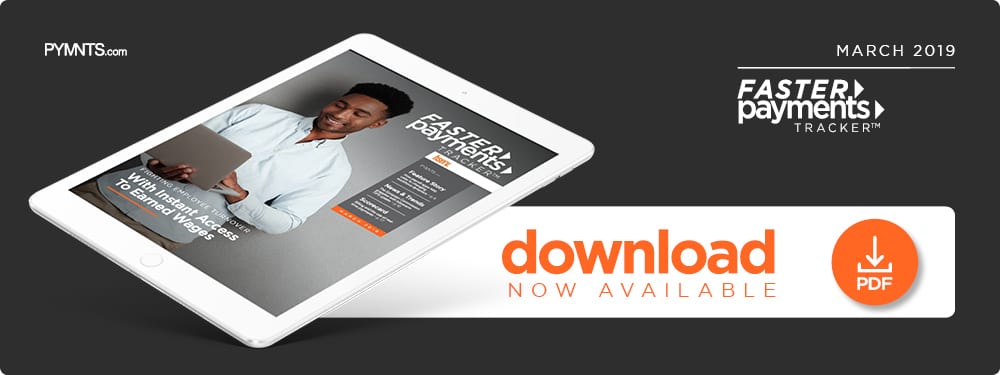As a result, employers are realizing that how much employees are paid isn’t the only element determining worker satisfaction — when they get paid is also critical. They might know they have big paydays waiting for them at the end of the pay period, but they’re still in a financial bind if rent is due tomorrow and they’re coming up short.
Two-week pay periods are becoming increasingly outdated, and more and more workers are asking for on-demand pay for earned wages, Jason Lee, founder and CEO of human resources payroll solution provider DailyPay, told PYMNTS in a recent conversation. Workers want to be able to use that money for necessities and emergencies, he added.
Instant Gratification and Making Ends Meet
Demand for a daily pay benefit is especially strong among millennials and Generation Z workers who are accustomed to accessing goods and services via mobile and are also expecting to be paid for their work instantly. Approximately 75 percent of the workforce will be comprised of these two groups by 2022, Lee said. This means it is increasingly important that employers cater to their changing expectations.
Other workers are also seeking faster access to their earnings, but out of necessity. Many in the U.S. live paycheck to paycheck or don’t have enough saved to cover unexpected emergency expenses, meaning they might struggle with out-of-pocket medical bills following an injury or home repairs after storm damage. These people are often hourly workers in service-based industries like hospitality, caregiving, nursing, retail, senior and assisted living, casual dining or other food services, Lee explained.
Advertisement: Scroll to Continue
“[These] are hardworking, job-holding Americans,” he said. “But, just by [the] fact that they’re currently paid every week or every two weeks, if they have an expense they can’t pay out of [their] current savings, they require their income now.”
It isn’t just dramatic life emergencies that might cause workers to need access to instant payments, either. Those who come up short while buying groceries might also want to access their pay in the moment, for example — and do so without risking overdraft fees or having to go without their food purchases.
That’s where app-based solutions that instantly transfer earned funds make a difference, Lee noted. For a standard, fixed fee, these solutions provide employees with 24/7, year-round instant access to earned wages. DailyPay’s solution offers employees instant payments and relies on a Fiserv product to enable real-time disbursements into their bank accounts. Users can also request that their funds be sent to payroll or prepaid cards.
These offerings aren’t without risks to the providers, however — risks that DailyPay takes on for employers by funding the payments. It receives payroll data from employers, fronts the funds in advance and then pays employees the remainder of their paychecks on their typical paydays. It won’t see the funds if employees are let go, though, and mitigating that risk means minimizing the percentage of the paycheck granted to new hires. The company also uses sophisticated machine learning (ML) technologies to assess each employee’s risk level, adjusting its payment offerings accordingly and carefully choosing the employers with which it collaborates.
Not all of DailyPay’s options are instant, either, as it wants to cater to employees’ various needs. They might select a slower delivery method — such as transmittal via the ACH network, which comes with a lower fee — should they realize they have a bill coming up in a few days.
“If I’m planning for the end of the week and don’t need my money literally this instant, I could opt to receive money through ACH,” Lee said. “It’s no different than when you go on Amazon and are choosing your shipping option.”
Employees tend to treat instant payments as convenient backups to be used as needed, rather than everyday habits, he added. They use the advanced-pay option once a week, on average — typically to cover shortfalls.
“Think of it no differently from an ATM that might sit in your lobby,” Lee said. “You walk by the ATM every day. You see it, you may need it or not need it, but the one week you do need it, you go up to [the] machine and take out the $100 and pay the fee.”
Knowledge is Power
Workers may want their money to be available the moment a need appears, but that’s not the only top-of-mind matter. Even more important is providing an available balance, Lee said.
Employees crave precise information about their finances to better plan for or avoid financial lapses. The complications of taxes and withholdings mean even workers who are aware of their hourly pay and clocked hours may not know exactly how much will arrive on payday. That can be a problem when strategizing when and how to pay bills, or determining if there’s enough left over to indulge in shopping or a dinner out.
DailyPay caters to this with real-time net earnings features that enable users to check their after-tax, after-withdrawal wage accrual at any given time.
“The real-time tracker of what [an employee] is building day by day, and what it ultimately will culminate [in] on the actual payday — we have found that to be the most valuable thing that we offer,” he said.
Though typical users only use early paycheck transfers once a week, they tend to check their available balances five days per week, he added — a service that DailyPay provides at no cost to the user.
Employees work with the expectation that their companies will give them financial security, and they’ll find other jobs if that promise isn’t fulfilled. Many want their earnings to be immediately accessible so they are better able to manage their fast-paced lives and weather unexpected developments. Solutions that help them more conveniently access their paychecks can spare both employers and employees from financial pains and foster greater company loyalty and worker retention in the process. The instant pay benefit strengthens the bond between employee and employer.





